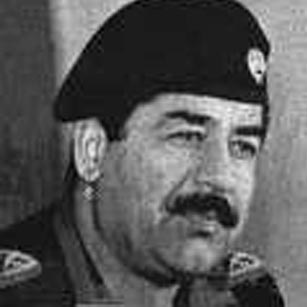
UNITED NATIONS Press Release
UNITED NATIONS
WORKING GROUP ON ARBITRARY DETENTION
REITERATES CONCERNS REGARDING
SADDAM HUSSEIN TRIAL
The Working Group on Arbitrary Detention issued the following statement following its forty seventh session, which ended on 24 November:
"Following the recent conclusion of Mr. Saddam Hussein Al-Tikriti's first trial before the Iraqi High Tribunal, the Working Group decided at the end of its forty-seventh session, held in Geneva from 15 to 24 November 2006, to reiterate its concerns expressed in its Opinion N° 31/2006 of 1 September 2006. In this Opinion the Working Group considered that the non-observance of the relevant international standards during Mr. Hussein's trial was of such gravity as to confer Mr. Hussein's deprivation of liberty an arbitrary character.
"The Working Group deems it necessary to issue this statement at this time, since it cannot be excluded that the death penalty imposed upon Mr. Hussein would be carried out before the Opinion is published in its annual report to the Human Rights Council.
"The Working Group was seized by a communication on behalf of Mr. Hussein, in which complaints about his allegedly unlawful detention had been put forward, whereupon the Working Group delivered two Opinions on this case.
"Its first Opinion (N° 46/2005), rendered on 30 November 2005, was rather procedural in nature. In this Opinion the Working Group took the position that it would not assess the lawfulness of Mr. Hussein's detention between 13 December 2003 and 30 June 2004, since the deprivation of liberty during this period took place in an ongoing international armed conflict, and the United States Government recognised that the Geneva Conventions apply to individuals captured in the conflict in Iraq. Furthermore, the Working Group considered that it would be premature to take a position on the arbitrariness of Mr. Hussein's deprivation of liberty, since the procedural flaws asserted, amounting to a violation of his right to fair trial could be, in principle, redressed during the subsequent stages of the proceeding. In this Opinion the Working Group invited the Governments of Iraq and the United States, to which the complaints in the communication were addressed, to file additional information.
"In its second and final Opinion (N° 31/2006), rendered on 1 September 2006, the Working Group concluded that the deprivation of liberty of Mr. Hussein is arbitrary, being in contravention of Article 14 on the right to fair trial of the International Covenant on Civil and Political Rights (ICCPR), a binding international treaty, to which both Iraq and the United States are parties. The Opinion set out a series of grave procedural flaws, such as, amongst others, the lack of independence and impartiality of the tribunal, which heard the case, the lack of respect for his right to have adequate time and facilities to prepare his defence, the restrictions on his right to access to defence lawyers and on the possibility to obtain the attendance and examination of witnesses on his behalf.
"In this context the Working Group invited the Governments of Iraq and the United States to consider whether a trial of the former Head of State in conformity with international standards is at all possible under the current conditions in Iraq, or whether the case should rather be referred to an international tribunal.
"The Working Group clarified in its Opinion that it does not request the release of Mr. Hussein. What it recommends to the two Governments is that the serious procedural shortcomings are redressed and that the situation of Mr. Hussein be brought in conformity with the principles of the Universal Declaration on Human Rights and with the provisions of the ICCPR.
"The Working Group also urges the Iraqi Government to refrain from carrying out the sentence of death by hanging imposed in a proceeding, which does not meet applicable basic standards of a fair trial.
"The text of the Working Group's Opinion 31/2006 will be available after the publication of its annual report to the Human Rights Council".